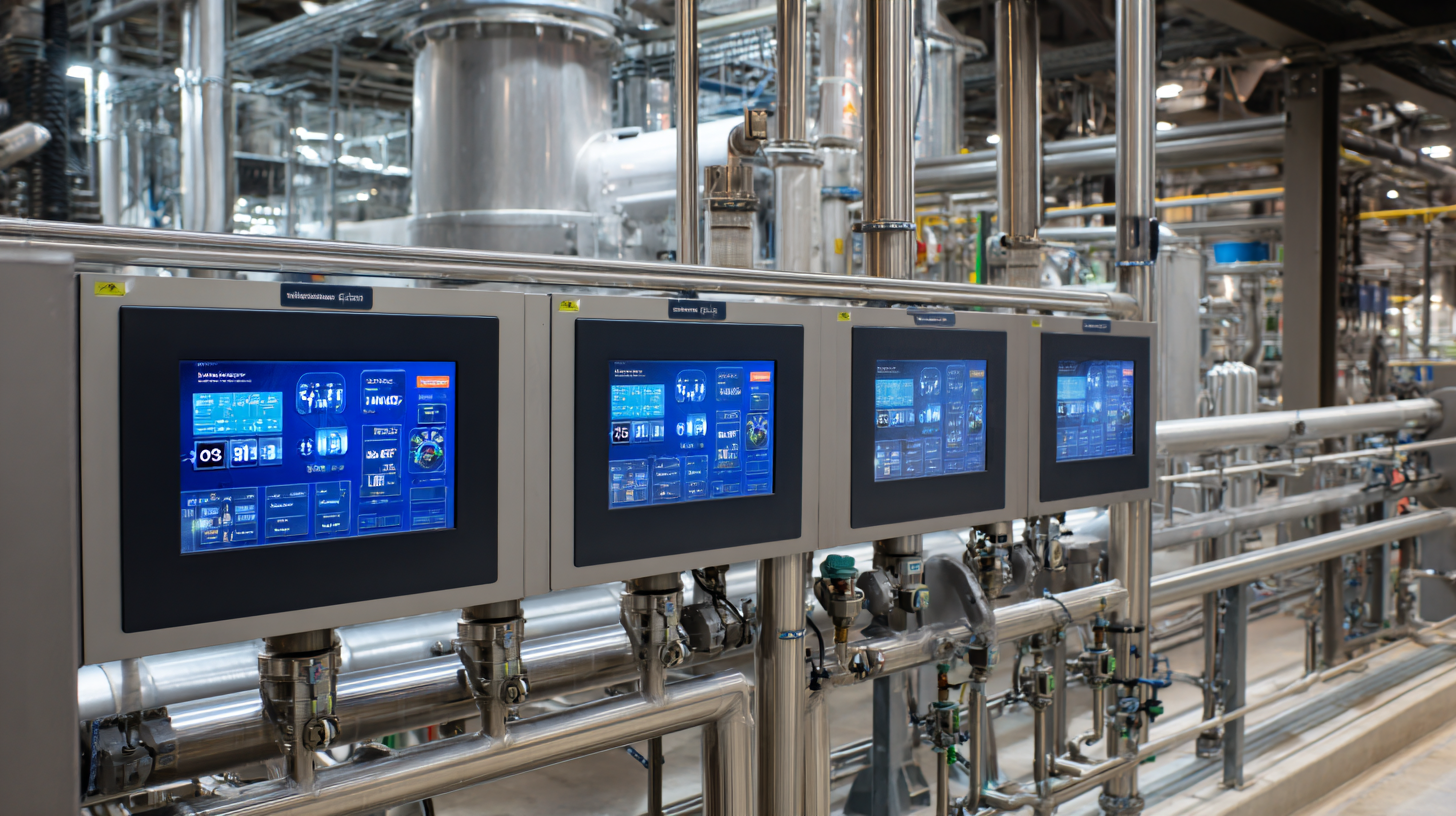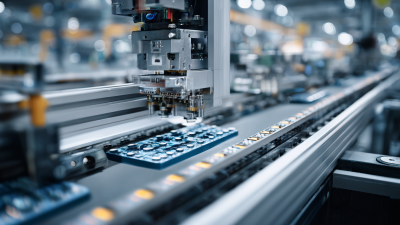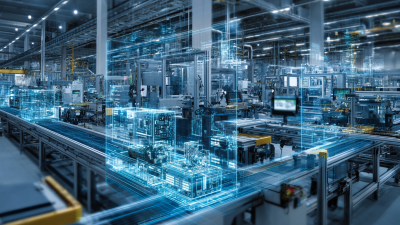In the ever-evolving landscape of industrial production, the efficiency of operations hinges significantly on the implementation of advanced manufacturing process control systems. According to a recent report by MarketsandMarkets, the global market for manufacturing process control systems is projected to reach $22.9 billion by 2026, growing at a compound annual growth rate (CAGR) of 8.5% from 2021. This remarkable growth is driven by the increasing demand for automation and the integration of smart technologies to streamline operations and reduce costs.
As industries strive to adapt to competitive pressures and changing market demands, experts emphasize the pivotal role that these systems play. Dr. John Smith, a leading industry analyst at the Institute of Industrial Engineering, states, "Manufacturing process control systems are not just tools; they are the backbone of modern production strategies, enabling companies to achieve unprecedented levels of efficiency and quality." By leveraging these innovative systems, organizations can optimize workflows, enhance product consistency, and achieve real-time visibility across their operations.

In this article, we will explore the top five manufacturing process control systems that are revolutionizing industrial efficiency, highlighting their unique features and the benefits they offer. As we delve into these cutting-edge solutions, it becomes evident that embracing these technologies is not merely an option but a necessity for manufacturers aiming to thrive in a rapidly changing marketplace.
 In the rapidly evolving landscape of manufacturing, innovative automation technologies are becoming pivotal in driving process control. The integration of digital twin technology plays a crucial role in enhancing operational efficiency by allowing manufacturers to create high-fidelity simulations and sophisticated models. This advancement enables manufacturers to explore complex scenarios and optimize their processes in real-time, leading to significant improvements in **product design** and production workflows.
In the rapidly evolving landscape of manufacturing, innovative automation technologies are becoming pivotal in driving process control. The integration of digital twin technology plays a crucial role in enhancing operational efficiency by allowing manufacturers to create high-fidelity simulations and sophisticated models. This advancement enables manufacturers to explore complex scenarios and optimize their processes in real-time, leading to significant improvements in **product design** and production workflows.
For instance, industries utilizing batch processes—such as those in the chemical and food sectors—are leveraging digital twins to refine their mixing and blending techniques. By simulating the interaction of various ingredients under specific conditions, manufacturers can innovate recipes and achieve consistent quality at reduced costs. As the trend toward automation accelerates, the ability to harness data and predictive analytics through digital twins will be essential for maintaining competitive advantages in an increasingly automated environment.
The integration of IoT and AI through digital twin technology is transforming manufacturing process control systems and driving market growth. By employing advanced simulations and high-resolution modeling, manufacturers can achieve a level of precision previously unattainable. Digital twins enable real-time monitoring and data analysis, which is critical for optimizing production efficiency, reducing downtime, and improving overall quality. This innovation supports a range of applications, including product design, where adjustments can be made in a virtual environment before physical implementation, enhancing both creativity and functionality.
Furthermore, this technological revolution extends beyond the manufacturing floor to impact various sectors. For example, warehouse management systems that utilize IoT and AI can automate operations, improving accuracy and significantly lowering operational costs. As markets evolve, the synergy between digital twins, IoT, and AI will continue to foster groundbreaking developments in product and system design, redefining operational standards across industries. The projected growth in associated markets, such as edge AI hardware and fire suppression systems, exemplifies the widespread implications of these advancements, reinforcing the critical role that technology plays in modern industrial efficiency.
In the rapidly evolving landscape of manufacturing, real-time data analytics is becoming a cornerstone for enhancing production efficiency. Modern production environments are increasingly dependent on sophisticated process control systems that gather data from multiple sources throughout the manufacturing floor. These systems enable operators to monitor key performance indicators (KPIs) continuously, allowing for immediate adjustments that minimize downtime and waste. By leveraging advanced algorithms and machine learning techniques, manufacturers can predict potential failures and optimize their maintenance schedules, further ensuring uninterrupted production flows.
Moreover, the ability to analyze data in real time empowers manufacturers to respond swiftly to market demands and operational challenges. With comprehensive insights into the production process, companies can implement agile methodologies that facilitate quick pivots based on consumer trends. This dynamic adaptability not only streamlines operations but also enhances product quality, resulting in increased customer satisfaction and market competitiveness. The integration of real-time analytics into manufacturing systems thus represents a significant leap forward in driving industrial efficiency and promoting sustainable practices.

In the face of rapid technological advancement, adaptive control strategies are transforming the manufacturing landscape by enhancing operational efficiency in dynamic environments. According to a report by MarketsandMarkets, the global adaptive control system market is projected to reach $7.5 billion by 2025, reflecting a compound annual growth rate (CAGR) of 12.2%. This growth is driven by the need for real-time data processing and flexible manufacturing processes that can quickly respond to fluctuating market demands.
Adaptive control systems empower manufacturers to adjust their operations dynamically, ensuring optimal resource allocation and minimizing waste. For instance, companies leveraging advanced adaptive control techniques report up to 20% reductions in production costs and 15% increases in output efficiency. These strategies integrate machine learning and advanced analytics, enabling systems to learn from performance data and make predictive adjustments. As industries strive to meet the rising customer expectations for customization and speed, the implementation of adaptive control strategies becomes not just beneficial but essential for maintaining competitive advantage.
The implementation of advanced control systems in manufacturing has led to remarkable success stories, showcasing their potential in revolutionizing industrial efficiency. One prominent case involves a leading automotive manufacturer that adopted a smart monitoring system to optimize its assembly line. By integrating real-time data analytics and machine learning algorithms, the company significantly reduced production downtimes and enhanced process visibility. This move not only improved output by 20% but also led to a substantial decrease in operational costs.
Another compelling example can be found in the food processing industry, where a major player utilized an automated quality control system. This system employed vision technology and sensory analytics to maintain consistent product quality. After deployment, the manufacturer reported a 30% reduction in waste due to faster detection of deviations from quality standards. These success stories illustrate how advanced process control systems not only streamline production but also foster a culture of continuous improvement, ultimately redefining operational benchmarks across various sectors.






